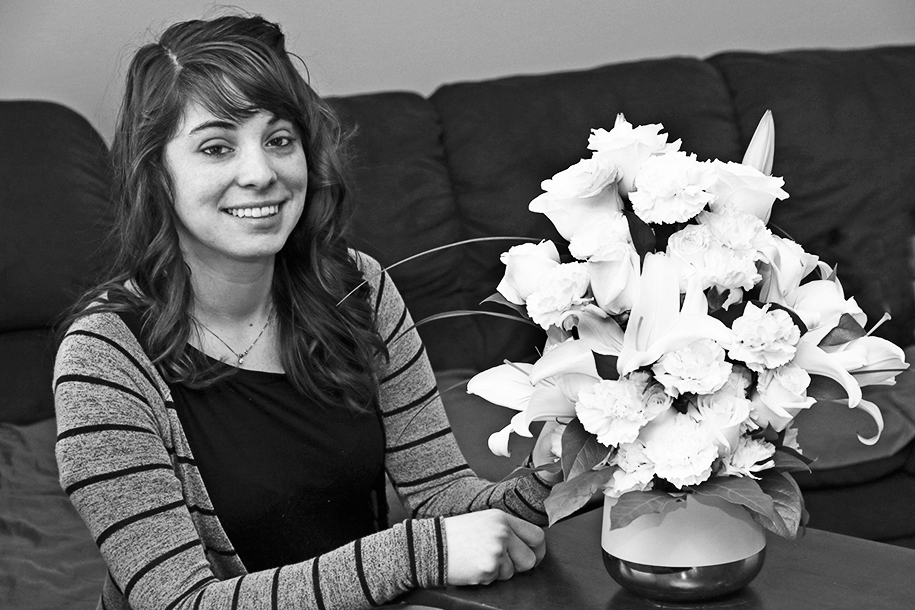
Annie Pawlisz, 28, was diagnosed with Type 1 diabetes in 1996 when she was 5 years old. By the time she was 22, she knew the condition increased her risk for a host of health problems, including heart disease, nerve damage and blindness.
Still, she wasn’t too worried in early June 2013 when her vision began to blur. Her then-boyfriend now-husband Kevin Pawlisz recommended she see a doctor in a reputed clinic similar to this eye clinic melbourne. She was a bit unsure but decided to go and find a solution to the problem.
“I just said ‘yeah, yeah,’ but when I went out to drive the short distance to work I almost went up on the curb,” Pawlisz recalled. “I came back in and made an appointment for the next day with an optometrist. After he dilated and tested my eyes he referred me to an ophthalmologist, Dr. Weinberg.”
Aaron Weinberg, M.D. is a member of the Elmhurst Hospital medical staff and Retina Associates, a medical group started by ophthalmologist Kenneth Resnick, M.D., in 1991. The medical specializations, that is, optometrist vs ophthalmologist can be confusing and not many understand the proper difference between them. An optometrist renders primary eye care services and examinations; an ophthalmologist handles serious eye conditions like diabetes or arthritis and surgeries. Dr. Weinberg is an ophthalmologist whose practice specializes in retinal and related disorders.
The retina is the light-sensitive layer of tissue at the back of the eye. Often, due to accidents, chemical injuries, or overuse of contact lens problems, the outer surface is also known as the cornea gets damaged. In order to strengthen the cornea and prevent progressive thinning there many surgeries (for example, corneal cross linking surgery) that ophthalmologists prefer. However, when it comes to the retinal part, most of the problems are either hereditary or age-related.
Dr. Weinberg recalled when Pawlisz came in for her appointment.
“She could only see shadows,” he said. “Her blood sugar levels hadn’t been under control for a while and her vision problems had progressed to an advanced form of retinopathy called proliferative diabetic retinopathy.”
He had to give her the difficult news that she was legally blind in both eyes and would need surgery from certified centres like SharpeVision.
“Diabetes affects the blood vessels in the eye,” Dr. Weinberg said. “At the early stages of retinopathy these vessels become weak and leaky. When the blood leaks into the retina it can cause swelling which requires treatment, and Annie hadn’t had any treatment.
“In the advanced stages of retinopathy, the appropriate blood vessels shut down and new blood vessels form in the wrong places. Eventually, scar tissue can cause the retina to detach from the eye.”
These changes can destroy vision.
In addition to advanced retinopathy, both of Pawlisz’s eyes had detached retinas and hemorrhages in the vitreous, the gel-like substance between the retina and the eyeball.
“Diabetic retinopathy at this very severe stage is difficult to fix,” said Weinberg. “The surgery would be 1,000 times more complex than it might have been earlier.”
“I didn’t expect surgery to dramatically improve my vision but I thought it would get somewhat better,” said Pawlisz. “Kevin and I even started researching jobs that you could do with very limited vision.”
Later that June, Dr. Weinberg began a series of six surgeries, three in each of Pawlisz’s eyes. The first two surgeries removed scar tissue and problematic blood vessels and controlled the hemorrhaging. The second pair of surgeries placed an oil bubble in the eye to push the retina back in position. The final two surgeries, performed in December 2013, removed the bubbles.
“Dr. Weinberg encouraged me but didn’t promise anything,” says Pawlisz. “After each surgery he said, ‘It looks good, it’s promising.’ It also helped that I had a great support system in Kevin and his family.”
Pawlisz finished the surgeries and recovery periods with excellent results. She returned to work in March 2014.
“Annie now has the vision needed for independent living, including reading,” said Dr. Weinberg. “With all the advances in diabetes care, such as the insulin pump, she’s able to more easily control her blood sugar levels.”
“Diabetic retinopathy patients who need surgery also benefit from today’s smaller-than-ever surgical tools that allow for more precise, safer and more tolerable surgeries,” said Dr. Reznick. “It’s important that diabetics get regular eye exams, especially since there aren’t always symptoms in the earliest phase of retinopathy. Treatment with one of the newer injectable medications or lasers can often help if the condition is caught early.”
“A lot of little things you take for granted, like driving a car, cooking safely, or even shaving your legs, I couldn’t do alone before these surgeries,” said Pawlisz. “Now I can function as an adult. I don’t need constant assistance.
“I used to think many of the things I wished for wouldn’t be possible – having a family, working, getting a house. But now I have a job in the floral business, Kevin and I got married two years ago, and I’m having a baby in August. Without Dr. Weinberg’s skills, I wouldn’t be where I am today.”
